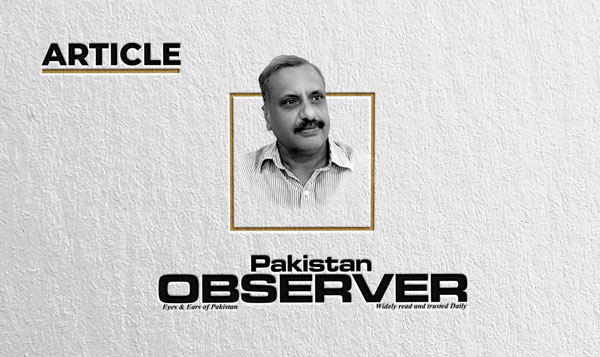A cry for justice in search of sharp ears ?
KASHMIR, the Jugular vein of Pakistan, is bleeding ever since 1947 where the people have been waiting for their right of self-determination which was guaranteed to them by the United Nations through a number of Security Council resolutions. As per the relevant clauses and spirit of 3rd June Partition Plan to divide the subcontinent, Kashmir, being one of the independent states, was also given the options to decide their future as per the aspirations of the people. In fact, Kashmiris had decided their future to form part of Pakistan on 19 July 1947, even before birth of Pakistan.
The General Council of All Jammu & Kashmir Muslim Conference (majority party of the State of that era) had passed the historic Resolution to accede to Pakistan in true spirit of 3rd June Partition Plan but Indian government had already made a plan to annex this lucrative State through overt and covert methods. Hindu Congress leaders of such eminence as the Congress President and the supper leader of all Congress leaders, Mr Gandhi, were conniving with Maharaja of Kashmir even before the Boundary Commission’s decision was known. They were already sufficiently hopeful on this point to regard journeys to Srinagar and talks with the Maharaja of Kashmir well worth their while.
Evidence which came to light subsequently clearly indicated that they had received assurances even before the Boundary Commission was appointed — even before the 3rd June Plan was finalized — that in a scheme of territorial division between Pakistan and India, the Gurdaspur district of British Punjab , which had an overall Muslim majority but included Hindu majority Tehsil of Pathankot could be and would be , so divided between the two prospective Dominions so as to give India at least a limited and technical contiguity with Kashmir in the shape of a few miles of common border. The situation worsened once the Indian government started annexing the independent states soon after the division of the subcontinent. Seeing Indian gimmicks, Kashmiris revolted against this and a liberation war started.
Consequently, Indian army landed in Kashmir on 27 October 1947 and started aggressive operations but sensing the defeat, India rushed to the United Nations on 01 January 1948 where resolution was passed by UNSC, followed by another resolution on 13 August 1948 with promises/guarantees for extending right to self-determination to Kashmiris through impartial plebiscite. Thereafter, a number of resolutions were passed by UNSC but to no avail. Finally, in December 1989, the indigenous armed struggle started in Indian Illegal Occupied Jammu & Kashmir (IIOJ&K) against India; demanding their legitimate right. On this, Indian government pumped over 0.6million troops in Kashmir to crush the movement which later increased to 1 million. Indian security forces started offensive operations, killing innocent citizens of Kashmir under the legal cover of Draconian laws.
These laws have such spewed effects on population that the rights related to human and democracy got scrubbed away. Needless to say, the militarization and detention in Kashmir have an astounding impact like extrajudicial killings, high scale custodial deaths and a large number of enforced disappearances. During the dark period of human history , the world community remained tight lipped whereas , the pain of Kashmiris has equally been felt by the people of Pakistan who had already fought three major wars with India besides many local battles, resulting into heavy loss of lives and almost all the wars had Kashmir relevance, therefore, it is right to say that Pakistani nation has supported Kashmiris by shedding their blood and same is seen being reciprocated by Kashmiris; embracing martyrdom in IIOJ&K and are buried, wrapped in the flag of Pakistan. To express the solidarity with the oppressed people of Kashmir, the people of Pakistan have been observing 5 February as “Kashmir Solidarity Day” since 1990, with the renewed pledge of continued moral and diplomatic support .This day is observed every year as an obligation because Pakistan and Kashmir have eternal bonds of geography, culture and religion.
Besides all other bondages that Kashmir shares with Pakistan, it appears that nature has also got a part to play in the beautiful saga of love, affiliation and respect between the two. A mere look at the lofty peaks of Kashmir mountain ranges surrounding Pakistan suggests as if these are the hands spread lovingly by an innocent kid towards its mother with all the hope in eyes and longing in the heart for that love, affection and protection proverbially associated with the later. In the decade of sixties, Shah of Iran visited Pakistan and was taken to Murree Hills. From Kashmir Point Murree, President of Pakistan Field Marshal Muhammad Ayub Khan briefed Shah of Iran and pointed towards the mountains of Kashmir, on which Shah of Iran remarked: “The one who holds these mountains, holds Pakistan “.
This year, the day will also be observed with traditional fervour, extending solidarity to Kashmiris to attract world’s attention. The world community will be apprised of Indian government for her coercive tactics and constantly been ‘modifying’ their tools to suppress hapless Kashmiris. There is a need to call upon the international community that mere condolence or issuance of condemnatory statements over the perennial woes of Kashmiris are not enough because now the elders of Kashmir are asking as how long they will continue shouldering the coffins of their youth?
—The writer is contributing columnist, based in Ghaziabad, Azad Kashmir.










